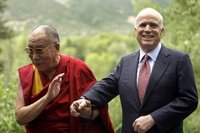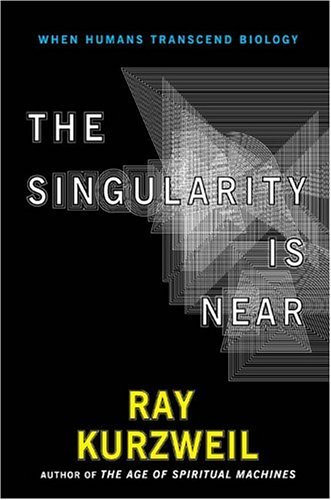Jerry Kolber is a writer, filmmaker and television producer based in New York City. His personal site is at www.JerryKolber.com and you can follow him on Twitter. Past projects include Inked and Queer Eye for the Straight Guy, and he is currently producing Bank of Mom and Dad, airing on Soapnet Wednesday nights at 10PM.
I’ve been thinking a lot about health insurance lately. Not because I need it – I pay $320 a month for policy through Freelancer’s Union – but because the conversation around the issue has become so distorted and false. There is so much wrong speech (from a Buddhist perspective) happening around health care that I am compelled to share some thoughts about it today.
The proposed “Public Option” is so simple it is shocking how badly some elected officials and the health insurance companies have twisted the meaning. Simply put, the public option is just another insurance option for people who already do or do not have insurance. Just as I can now choose between HIP, Blue Cross, AETNA, or the Freelancers Union Insurance, if a public option existed I could also choose that. That’s it. As the name more than suggests, it is just another option.
So why is this public option important?
In order to provide proper medical care to anyone in the country – as
any prosperous nation should – everyone must have health insurance.
This means that the public option would at the very least immediately
include the 15% of Americans who fall in the insurance “gap” – people
making too much money to get low-income government insurance, but not
enough to afford a private policy. This is around 40,000,000 people,
and this would make the “public option” the largest single health
insurance organization in the country.
This matters because in
order to keep those policy costs low – which is the whole point of
health care reform – this massive, national body of health insurance
customers would give the public option immense bargaining power with
drug companies, doctors and hospitals. If the public option works, AND
drives down the costs of healthcare and insurance premiums, existing
private insurance companies would have to keep up or risk losing
customers and profits – or (gasp) figure out some way to offer some
incentive or perk to keep customers in a more competitive market.
This
of course terrifies the insurance companies, as it should, since they
are built on a profit model, not a health care model. But this is where
my Buddhist perspective kicks in and the whole interdependence thing
starts to chew its own tail. Essentially, the argument against
introducing a public option that could affect insurance company profits
is this:
“We’ve spent fifty years building an insurance model
that creates profits for us and our shareholders. It’s designed on
only offering insurance to people who can afford it, excluding people
who really need it, and denying as many claims as possible to maximize
profits. This is a system that works and we know it works because our
companies are profitable.”
The problem with this logic is that
it leaves out the more than 40,000,000 people who cannot afford
insurance. If you are an uninsured couple with two kids making $55,000
a year, taking home around $40,000 – health insurance will cost you
nearly a third of your salary. In the last ten years, I’ve personally
spent $72,000 on health care as a single person. About $40,000 of that
was monthly health care premiums. About $2,000 was doctor visits and
prescriptions. And another $ 30,000 was tax payments to Medicare for
insurance for the elderly and disabled. I cannot account for how much
of my tax dollars subsidized insurance for low-income families and
individuals, but some portion of my tax dollars went to that as well.
Would
I rather spend less and insure more people? Duh. But the fact that
“Spend Less, Insure More” is not acceptable to the insurance companies
and a large number of officials elected to represent the best interests of the citizens of the USA makes clear that their mandate is “Make More,
Insure Less”. And they’ve done a great job using fear, racial bias,
and inflammatory language to convince tens of millions of Americans to
vocally take a stand against their own best interests.
The
public option isn’t welfare. It isn’t a tax. It isn’t some sort of
communist soup-kitchen health care line. You can’t argue the fact that
a system that provides health care options to the poor, the old, and
those that make enough money, while leaving out a entire swath of
middle income earners, is broken. Really broken. Fixing it is both
right, and popular. Unfortunately a small, vocal minority has used
wrong speech and the press’s insatiable desire for lurid sound bites to
manipulate and control the health care message.
Whoever you are, whatever you look like, however hard you work, the
uninsured in this country are people that look like you and work as
hard as you. As the only industrialized nation without Universal Health
Care, the United States has put itself in an amoral, if not immoral
position – we can easily afford to provide affordable health care for
all Americans but to date we have chosen not to do so. Choosing profits
for a select few over health for all says something deeply nasty about
a nation. At least, I think it does.
Wake up America. This
may be your one chance in a generation for America to join the rest of
the developed world in having an entire nation of citizens who don’t go
to bed at night worried about what might happen if they get sick. If
we are to be taken seriously in the coming decades as a nation with any
sense of morality and decency, it is time to put our insurance
companies money where our collective mouth is and get the ball rolling
on healthcare and justice for all.
So here’s the action,
since the Interdependence Project is all about taking your practice
offf the cushion – and this is an easy one that anyone can do in five
minutes or less.
Unless you think it’s right that hard-working people should be priced
out of insurance, please call, email, or write your representative and
the White House and tell them you support the public option. You can
find your representative by zip code here. And you can email the Preisdent here, call him at 202-456-1111, TTY for the hearing impaired at 202-456-6213 or write him at
The White House
1600 Pennsylvania Avenue NW
Washington, DC 20500

